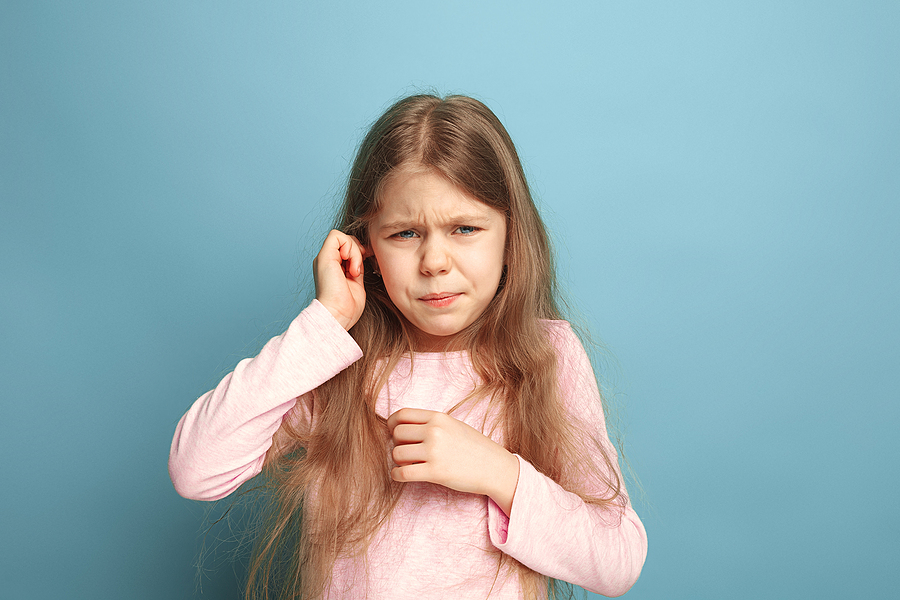Preparing an Allergy-Safe Start to School: For Teachers, Nurses, and Parents
Posted By:SSG Admin Posted On:08-Aug-2025
The start of a new school year is fast approaching. Due to the prevalence of childhood allergies. Per the CDC, more than 25% of children have at least one allergy. Of those kids, 18.9% have seasonal allergies, 10.8% have eczema, and 5.8% have food allergies.
As a teacher, nurse, or parent, you’re the first line of defense in keeping those children safe when they’re at school for many hours per day. Premium Allergy & Respiratory Center created a guide to help children with allergies have a safe start to their school year.
Parents: It’s Your Role to Set the Stage
You know your child better than anyone. You play the lead role in keeping your child safe at school. Use this checklist to make sure you provide the school with the information and tools needed to ensure the school is an allergy-safe zone.
1. Schedule an Appointment With Medical Professionals
Make sure your child sees a pediatrician and allergist before school starts. Make sure prescriptions are current and that any necessary medications, such as inhalers, are not expired or nearing empty.
2. Teach Your Child Tips for Staying Safe
You, teachers, and nurses play an important role in establishing an allergy-safe learning environment, but your child needs to be aware of the risks of exposure to an allergy. Teach your child:
- What allergies your child has.
- Not to share food or beverages with their friends.
- What symptoms are warning signs of an allergic reaction?
- Who they go to if they’re not feeling well.
If possible, include your child’s best friends. A friend might need to get help if your child cannot speak.
3. Update Your Child’s Allergy Action Plan
Review the current Allergy Action Plan to ensure nothing has changed. It needs to contain:
- What allergies your child has.
- What symptoms occur and their severity?
- What a teacher or school nurse needs to do if an allergic reaction occurs.
- Who to contact in an emergency.
Arrange a Meeting With the School Nurse and Teacher
Arrange a meeting with the school nurse and any teachers who will be with your child each day. In this meeting, provide each person with a copy of the Allergy Action Plan. Go over it and answer questions. Cover what allergies your child has and what reactions have looked like in the past.
Learn as much as you can about the lunch period. What measures are taken to keep a child with allergies safe? Is there a safe place where your child will be able to store lunch so that it’s not accidentally taken by another student?
You also need to give the school nurse any medications that are used if there’s an allergic reaction. Make sure that prescriptions are current and that there’s enough of a supply. Provide written permission for teachers and the school nurse to administer those medications. A note from your child’s doctor is also necessary.
Teachers: Help Create a Safe Classroom Environment
While a parent can provide details to the school workers, teachers spend the majority of the day with that child. For this reason, teachers are one of the most important people in keeping the educational setting safe for the child. Teachers should:
1. Read Over the Allergy Action Plan
Make sure you understand the information that’s provided. If anything is unclear to you, ask questions. You need to know the triggers, symptoms, and treatments. Put the information in a safe, easy-to-find location.
2. Keep the Classroom Free of Allergens
It’s hard to be perfect, but this is an area where getting to 100% is important. You can’t stop what other children do, but you can keep the classroom as free of allergens as possible. If you know the child has an allergy to latex, triple-check that all art supplies in a classroom are free of all latex.
This also requires some level of teaching the rest of the class about the student’s allergy. They need to know what happens if that child has an allergic reaction after accidental exposure.
3. Have Clear Food Rules
Send home notices and email parents and require a response that they’ve read it. Make sure they know not to send foods containing an allergen if that’s a problem. If a child is allergic to peanuts, you don’t want a parent sending peanut butter cupcakes to the classroom for a celebration.
When snacks are served in the classroom, make sure you’re monitoring that children are not giving the child with allergies their snacks and lunch items. Watch the child for signs of an allergic reaction.
4. Know Where Medications Are Stored
Ideally, the child needs fast access to an inhaler or EpiPen. In most cases, the school nurse holds the child’s medications, but that’s not always practical if the child’s symptoms cause issues like swelling of the tongue and throat.
In that case, an EpiPen should be close to the child, such as in a backpack, school nurse’s office, or even stored in your locking cabinet or desk. If something happens, fast access to those medications can save the child’s life.
Make sure you have the nurse’s phone extension memorized for quick access in an emergency. California state law requires a nurse to administer medications. The child might be able to self-administer the medications. Teachers generally are not the ones to do this.
5. Plan Field Trips With Care
Field trips are fun for students and their teachers, but you don’t want to create an allergy risk during that trip. Do your research and ensure that the destination can create allergy-free zones, too.
If you’re going to a museum with a cafeteria, the cafeteria needs to be aware of allergies to ensure the food that the class is served is safe for every student. If the field trip is to a park and a child is allergic to bees, a walk through a field of wildflowers isn’t appropriate.
School Nurses: Back Up Parents and Teachers With Medical Expertise and Support
If an allergic reaction happens, a school nurse is an expert in medical treatments. A school nurse needs to:
- Consult with parents to ensure all necessary information is provided.
- Ensure that a child’s school setting is allergy-free and consult with teachers, other school officials, and parents when allergic reactions happen.
- Keep a log of allergic reactions and the steps taken to treat them, and the measures you’re using to keep it from happening again.
- Maintain allergy treatment guidelines and advancements.
- Manage access and storage to any medications like EpiPens or antihistamines.
- Provide training to school staff who will be responsible for that child each day.
- Review medications to ensure that they’re administered properly and refilled as needed.
- Understand and maintain the Allergy Action Plan.
- Work with the school board and administrators to create school-wide allergy policies.
Add the Expertise of an Allergist
Address allergy concerns before the school year begins, and work as a team. When parents, teachers, and nurses collaborate, a safe, supportive educational environment is the end result. Isn’t that what children deserve?
There’s one more person to add to your team. Doctor Angela Sabry at Premium Allergy & Respiratory Center specializes in pediatric allergy treatments and prevention. Reach out to the office to schedule a consultation to ensure the steps taken to keep your child safe are enough.





